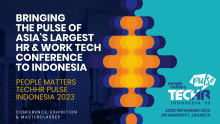HR Technology Market Trends in 2021

In the last decade, the advancements made in HR technology completely changed the landscape of the industry. Today, many HR professionals rely on technology to provide them with the appropriate data, research, and protection.
Moreover, the technological shift in HR services made a significant impact on the way HR departments function. Everything from recruitment to payroll is maintained and coordinated with HR software.
Therefore, analyzing the HR market is a foolproof way to determine the trends in the industry itself.
AI in HR
Artificial intelligence is becoming an essential part of most new-age HR technologies. Listed below are some of the upcoming and crucial techniques via which AI will impact HR services.
Augmented Analytics
Using AI processes to understand and systematize tedious tasks allows HR teams to save time. They can save their energy and focus for strategic planning and high-value tasks.
Additionally, AI-powered and energized HR tools allow easier access to curated data and visualization, making insight-driven, strategic thinking a lot more convenient.
Augmented analytics automates insights by deploying machine-learning techniques and natural language processing tools. This facilitates a more user-friendly and self-service way of reviewing employee data and producing actionable insights.
Improving Employee Engagement
The use of AI-driven processes in areas like employee engagement and performance via employee engagement software will revolutionize these areas. The software now focuses on improving the lives of employees authentically and substantially.
The emphasis will be on maintaining the workers' psychological well-being and building an environment where they can perform at their best through continuous performance monitoring. Additionally, each member of staff will have personalized learning paths.
AI-powered Recruitment
Combined with an expansion in cloud-computing, AI-based processes will bring a rapid transition in the way employers locate talent. AI for talent acquisition helps explain individuals' profiles to an unparalleled degree, pulling from multiple outlets, including their social media participation. This, in turn, will help HR teams establish a more efficient recruitment process.
Cloud-based HR
Working Remotely
Remote working is proliferating workplaces worldwide and is becoming the new normal. This trend has been accelerating over the past few years, more so due to COVID-19. Increasingly, individual firms will switch to a remote-first model, while some will get their workers remote working opportunities.
HR tech needs to become cloud-based, and teamwork and communication platforms are vital to this change. Cloud-based HR solutions simplify the people management process and meet the needs of globally dispersed teams in a fast and scalable manner.
Data Security
There are two key advantages of cloud-based HR.
While it helps the HR team to view and make real-time decisions on employee data, the cloud-based self-service tools often give workers more control as well. Thus, it's much simpler for businesses to measure efficiency and interaction.
However, with a dispersed workforce, security of company and client data becomes tougher. Solutions for handling these concerns are key in HR.
Constant Learning & Development
By training the workforce for this transition, organizations may gain loyalty from their employees. That's how the HR software can be utilized to personalize employee learning and development. Although up-skilling is essential for the present job position, it is vital to develop more transferable skills and competencies.
Acquiring technology that invests in soft-skills training -- such as collaboration, being a critical team member, or staff management -- has become crucial in an environment where technology can take over routine tasks.
Performance & Well-being
Quality assessment is going to be real-time, ubiquitous, and integrated in a remote-first world. To create a continuum of expectation-setting and reviews, most current companies will increasingly use HR technologies, allowing much closer evaluation and employee performance enhancement.
The practice of annual assessments is outdated, and companies are upgrading to more regular (quarterly/monthly) reviews with the potential to do even more compartmentalized check-ins (weekly).
Moreover, employee well-being is now seen as a critical aspect of morale and success. The best businesses are now looking for solutions that balance physical, behavioral, and emotional well-being.
HR tech resources operate around the physical well-being of workers, including gamification and wearability. Mental fitness and health devices are gradually being integrated into HR software at the same time to reflect on employee well-being and productivity.
Gig Economy
The gig enterprise has been around for a while now. However, as people gradually seek to operate on their terms and conditions, it is only expected to grow.
Employers are now finding that they can reach results quickly by using a combination of consultants, freelancers, and full-time workers.
The gig economy jobs represent as many as 36 percent of the workforce for certain employers. Hence, the HR team's task is to coordinate the staff on one forum despite their different employment status. A personalized software solution might come in handy.
Virtual Reality
Virtual reality is changing many markets exponentially, and HR is no different. Virtual reality will assist in various conventional HR processes like interviews, work previews, and even onboarding.
This technology can help close the divide as the globe grows more disconnected and social distancing continues to be the rule.
Conclusion
The world has changed rapidly over the last few months. While this change may seem temporary, it is likely to spark behaviors that will transform the future of work in endless ways.
Therefore, HR technology is also expected to adapt accordingly to meet these changes. A definite commonality is that emerging HR technology trends will drive this transformation - whether AI, cloud-based HR, or virtual reality.
Know more about the HR Tech trends at People Matters TechHR SEA 2021 from 5th to 7th May. Click here to register.















